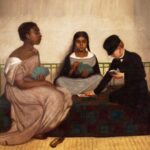 Global Black Thought (Web)
Global Black Thought (Web)
Proposals by: 01.07.2025
Few works in American history are as groundbreaking as W.E.B. Du Bois’s „Black Reconstruction in America“, first published in 1935 (Web). In the 90 years since its publication, the book changed the mainstream interpretation of the Reconstruction era in American history (Web) – first slowly, as most historians were still wedded to the Dunning School (named after William Archibald Dunning of Columbia Univ.), and then rapidly in the 1960s, 70s, and 80s, as the triumphs of the Civil Rights and Black Power movements forced a reckoning with how American historians wrote and researched Reconstruction. In the 21st century, „Black Reconstruction in America“ has become a tome cited widely by academics and activists alike.
But what does „Black Reconstruction in America“ mean for the historical profession in the 2020s? Du Bois’s interpretation of Reconstruction as an effort at genuine reform that was thwarted by the American government is well understood. But the question remains: how might we continue to engage – and perhaps even extend – Du Bois’s analysis today? The recent works of Kidada Williams, Manisha Sinha, Don H. Doyle and others have challenged us to think more critically about this period of American history. Building on this scholarship, the editors encourage scholars to pose new questions – or revisit older ones with a new lens – to tease out the intricacies of the Reconstruction era.
The editors also encourage writers to consider how „Black Reconstruction in America“ can inform a myriad of contemporary issues – including the ongoing efforts to keep Black history and the perspectives of Black writers out of the classroom. Du Bois’s pioneering book, published against the backdrop of the Great Depression, was a direct refutation of the false narratives emerging from leading white scholars of the Dunning School. In their portrayal of Reconstruction, the Dunning School scholars had portrayed the South as victims and the North as having committed a “grievous wrong.” Their writings on the subject treated the free and enslaved Black population with “ridicule, contempt or silence,” as Du Bois explained. „Black Reconstruction in America“ boldly confronted racial stereotypes and mischaracterizations of Black intellectual ability. The work stood as an example of how Black historians have taken an active role in confronting political abuses of the past. How might it inform the research and writing of Black intellectual history in the United States and across the globe?
On the occasion of the 90th anniversary of the book, the editors encourage scholars to grapple with the significance and continued relevance of „Black Reconstruction in America“. The editors especially welcome submissions that grapple with the intersections of race, gender, class and nationality. Continue reading

 Abteilung Ariadne an der Österreichischen Nationalbibliothek (ÖNB)
Abteilung Ariadne an der Österreichischen Nationalbibliothek (ÖNB)  Institut für die Erforschung der Habsburgermonarchie und des Balkanraumes der Österreichischen Akademie der Wissenschaften
Institut für die Erforschung der Habsburgermonarchie und des Balkanraumes der Österreichischen Akademie der Wissenschaften  Wienbibliothek im Rathaus
Wienbibliothek im Rathaus  Verein für Geschichte der Stadt Wien
Verein für Geschichte der Stadt Wien  Institut für Historische Sozialforschung, AK Wien
Institut für Historische Sozialforschung, AK Wien  IPW-Lecture WiSe2024, Gender & Politics: Inst. für Politikwissenschaft, Univ. Wien, Lehrstuhl Geschlecht und Politik: Dorit Geva
IPW-Lecture WiSe2024, Gender & Politics: Inst. für Politikwissenschaft, Univ. Wien, Lehrstuhl Geschlecht und Politik: Dorit Geva  Webportal „Erinnerungsort Wien“; Bruno Kreisky Archiv und Johanna Dohnal Archiv
Webportal „Erinnerungsort Wien“; Bruno Kreisky Archiv und Johanna Dohnal Archiv